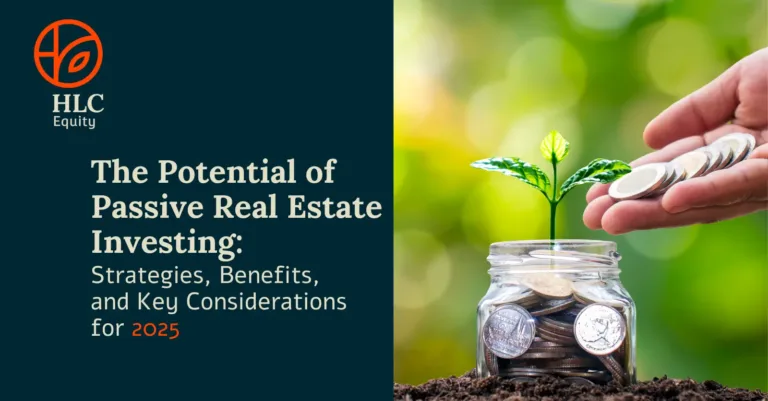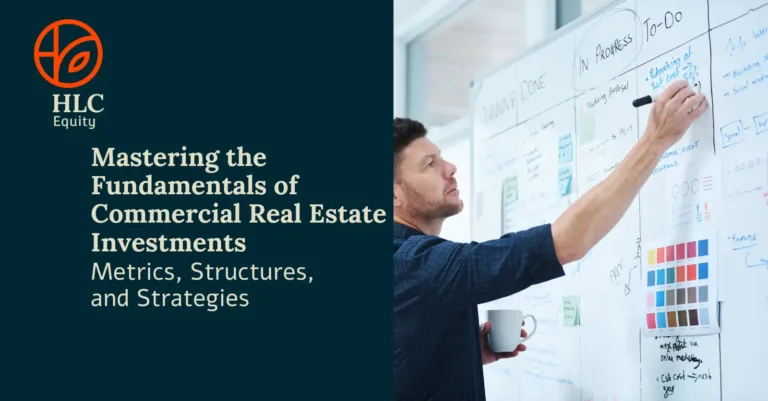
HLC EQUITY
HLC EQUITY’S GUIDE TO YEAR-END PHILANTHROPY: STRATEGIES FOR IMPACTFUL AND TAX-EFFICIENT GIVING
Economic challenges are largely unavoidable – and this year has proven to be no different. Therefore, it’s critical that strategic philanthropy becomes a part of your financial considerations throughout the year. HLC Equity has compiled a guide, based on strategies we consistently use, to help maximize the impact of your year-end philanthropy while ensuring tax efficiency is factored into the equation. HLC Equity CEO, Daniel Farber, outlines six key strategies you can not only implement today, but utilize in years to come to maximize the impact of your philanthropic giving.
Leverage Tax Benefits to Amplify Impact
“End of year planning in a tax efficient manner is crucial as it allows us to not only contribute to the causes that are important to us, but by making it more tax efficient, we can amplify our ability to give by utilizing deductions and leveraging resources.” says Daniel Farber, CEO of HLC Equity. Charitable deductions are the ingredient that makes giving a win-win, positively impacting recipients and givers alike.
ACTION: Explore non-cash asset donations, which not only allow for potential capital gains tax elimination but also provide an opportunity to increase the overall contribution to charity.
Identify Strategic Investments for Maximum Impact and Tax Efficiency
“It’s important to evaluate your investments to make giving a tax-effective endeavor,” notes Farber. Consider non-cash assets with substantial appreciation for charitable donations.
ACTION: Confirm your investment advisor has tax efficiency on the short list of factors in which they evaluate the efficacy of an investment.
Consolidate Gifts for Maximum Deductions
“Strategic planning is key. Bunching donations can be a powerful tool,” says Farber. Exceed the standard deduction by consolidating contributions over multiple years.
ACTION: For a longer-term strategy, individuals can use donor-advised fund accounts, allowing you to combine several years’ worth of contributions, optimizing tax benefits and potentially eliminating capital gains taxes on appreciated non-cash assets. Additionally, if the funds in the donor advised account are invested well, it can grow tax free, allowing you to amplify your giving capabilities.
Align Your Donations with Taxable Events
“Aligning giving with significant taxable events is a strategic way to maximize impact and reduce tax liabilities,” states Farber. Charitable contributions can offset unexpected tax liabilities.
ACTION: Consider events like unusual income years, investment portfolio rebalancing, and retirement account withdrawals, emphasizing the tax benefits associated with strategic giving.
Explore Emerging Philanthropic Markets
“Innovation exists in the world of philanthropy just like the private markets. New opportunities continue to arise,” continues Farber. Identify innovative charitable initiatives or organizations that align with your values and are making a significant difference in areas that may not receive mainstream attention.
ACTION: Stay informed about emerging causes and organizations to ensure your contributions create a meaningful and lasting impact in the ever-evolving landscape of philanthropy.
Strategize Giving for the Present and Future
“Giving now and later requires careful consideration of your goals and financial situation,” states Farber. Segment your charitable goals into immediate impact and future-focused strategies.
ACTION: Align giving strategies with your financial goals, family needs, and desired charitable legacy, offering a holistic approach to philanthropy.
As we come to the end of this year’s giving season, HLC Equity’s strategic framework for philanthropy not only maximizes impact but also aligns with the current economic landscape. By following these six key strategies, individuals and families can make a meaningful difference in their communities while optimizing their tax benefits.
To discuss more about this topic and more, email us today at partner@hlcequity.com.
Disclaimer:
The information contained in this guide was developed for internal purposes and is intended for general informational use only. We are not financial advisors, and the content presented should not be considered as financial, tax, or legal advice. It is strongly recommended that individuals and families seek professional guidance from their personal financial advisor and tax consultants before making any decisions or take any actions pertaining to their financial or tax planning.


